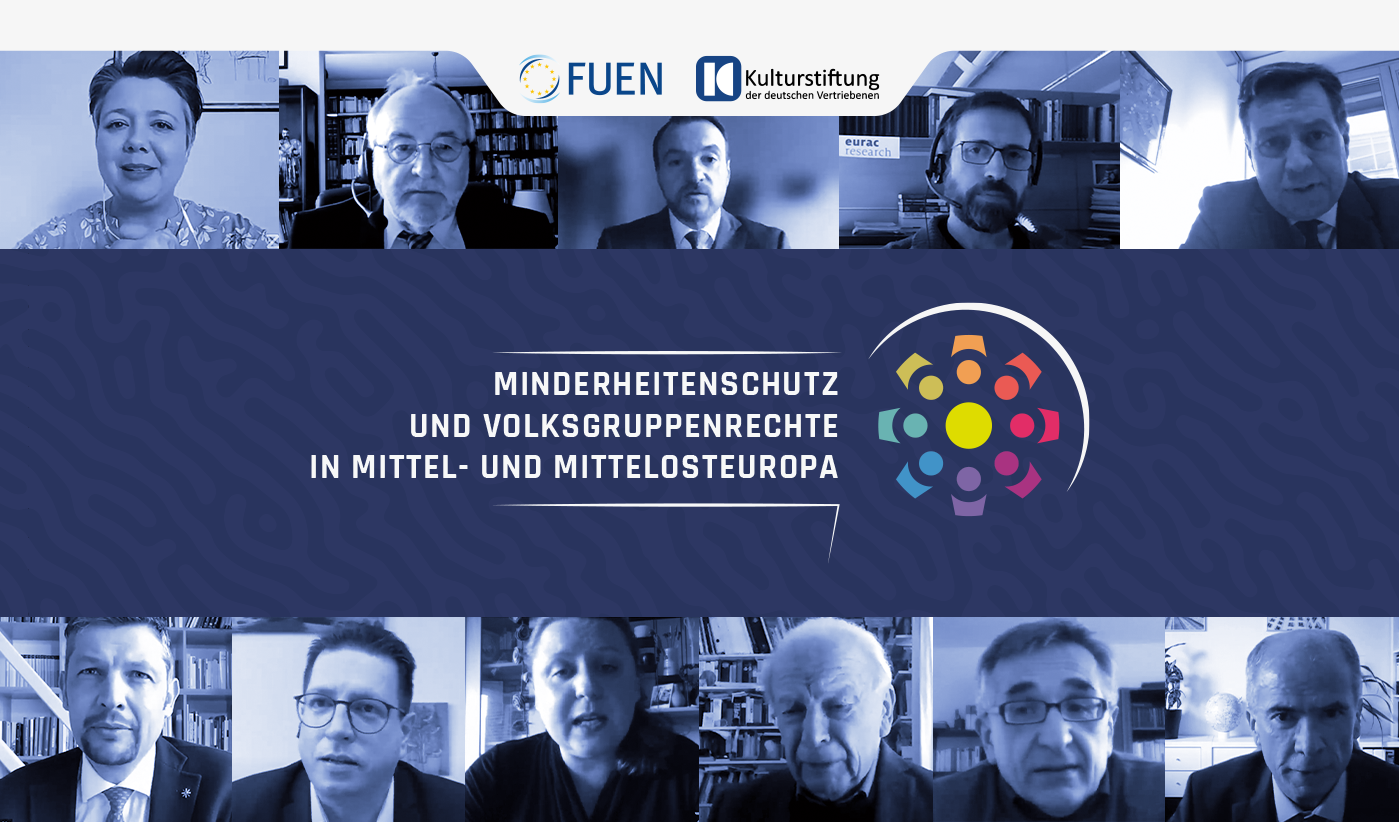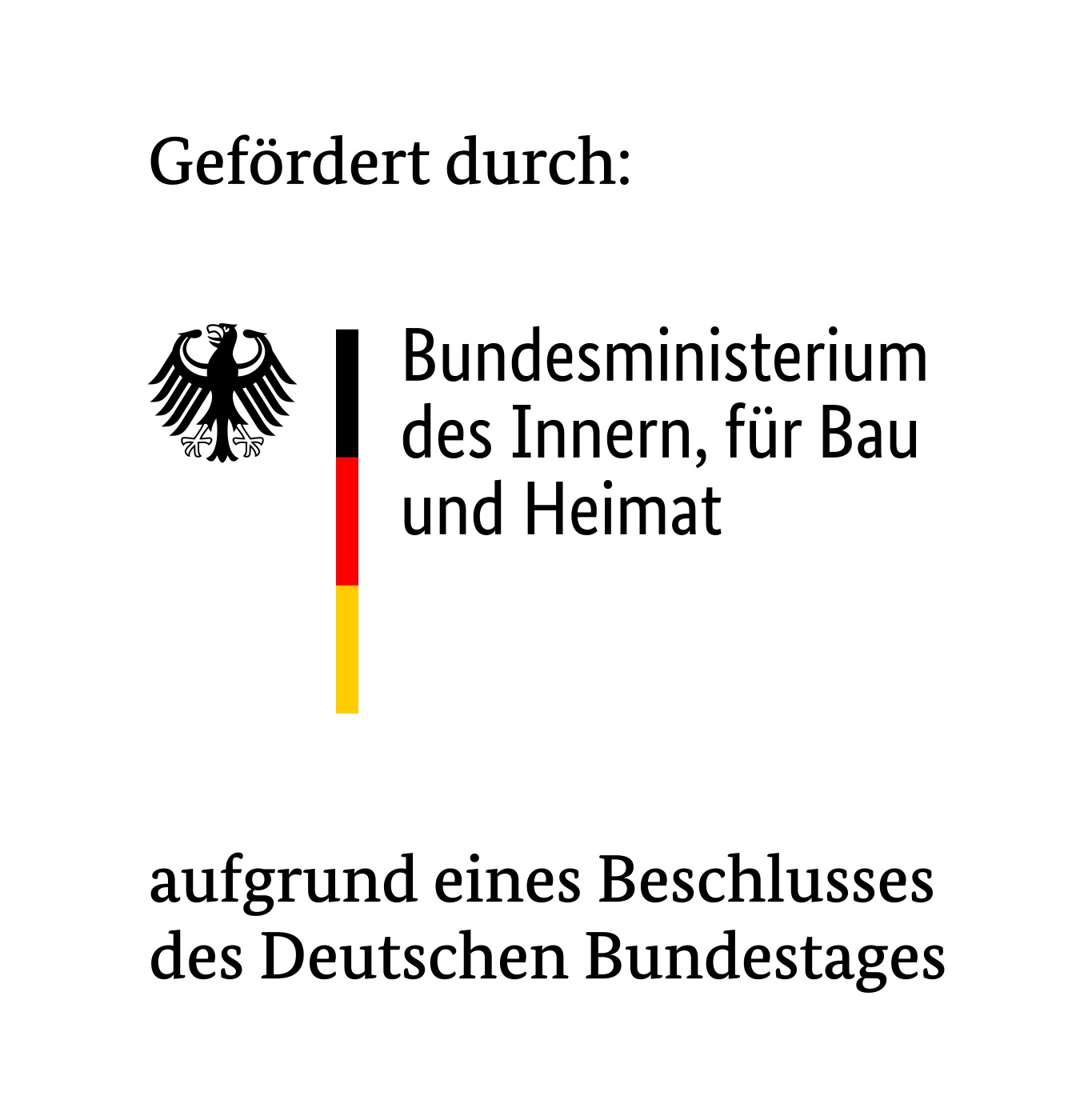
The February edition of the conference "Minority Protection and Ethnic Group Rights in Central and Central Eastern Europe" was dedicated to Austria, Italy and the Czech Republic
01.03.2021On February 25, 2021, the Federal Union of European Nationalities (FUEN) and the Cultural Foundation of German Expellees continued their online conference format "Minority Protection and Ethnic Group Rights in Central and Central Eastern Europe," which was launched in October 2020. Designed as a series for 2021, the focus this time was on Austria, Italy, and the Czech Republic. In ten-minute presentations, experts described the legal framework in the respective countries as well as practical experiences with its implementation. In the ensuing discussions, there was also room for questions and specifics.
At the beginning of the event, MEP Loránt Vincze, the President of FUEN, outlined in his welcome address the necessity of presenting an overall picture of minority rights in Central and Central Eastern Europe. “While in Western and Southern Europe, the situation of the minorities has not changed significantly in the last decades, in Central and Eastern Europe this is a current topic. It is precisely here that the minorities are very committed to claiming their rights, but also need support in doing so. This is why the conference focuses on these countries. But there are not only problems, but also best practices in this part of Europe, as today’s presentations will show” – said the FUEN President.
Reinfried Vogler, Chairman of the Board of the Cultural Foundation, then emphasized that minority rights are a topical issue worldwide. Many conflicts arise from a feeling of discrimination, he said. "If you want peace, you have to create justice," Vogler quoted the UN Special Rapporteur on Minority Issues, Dr. Fernand de Varennes.
The role of minorities as bridge-builders between nations and societies must be strengthened, that is why it is important to continue the dialogue and to expand already existing protection mechanisms in Europe, said Stephan Mayer, Parliamentary State Secretary at the Federal Ministry of the Interior, Building and Homeland Affairs. He welcomed the idea of the conference and congratulated the organizers for the flexibility they have shown despite the very difficult situation created by the coronavirus pandemic. “Minorities tend to become the special victims of corona, and we have to fight this”, he added. Stephan Mayer congratulated and thanked FUEN for the great job and successes they achieved with the Minority SafePack Initiative and also expressed his disappointment for the way the initiative was rejected by the European Commission.
From a legal point of view, minority protection is at the same time positive discrimination, stated Prof. Dr. Dr. hc. mult. Gilbert H. Gornig. Only through increased support for underrepresented ethnic groups is it possible to enable them to participate in public life. For the society as a whole, however, this is an investment in its own future, as it can also prevent secessionist efforts. Afterwards, Sergiu Constantin, Senior Researcher at the Institute for Minority Rights of Eurac Research, took over the moderation of the country reports.
Prof. Dr. Peter Hilpold from the University of Innsbruck explained the legal situation in Austria. Although today the country is considered a model in terms of minority protection, some wishes of the ethnic groups still remain unfulfilled, he noted. Also, the regulations in the different federal provinces differ from each other, especially with regard to minority school laws. More attention should also be paid to the promotion of minority media.
Olga Voglauer, Member of the Carinthian National Council, also addressed the federal aspect of minority protection in Austria in her contribution. She said that an environment had to be created everywhere in which ethnic groups could use their languages in everyday life. An active language environment starts in early childhood education. "There is a lack of appreciation for multilingualism," she said. That's why the right to bilingual education should be enshrined from kindergarten onward.
Dr. Davide Zaffi from the South Tyrolean Institute for Ethnic Groups spoke about the legal situation in Italy. There are clear differences in the particularly protected minority languages. Although regulations on regional education and access to the media have been created in South Tyrol, Friuli-Venezia Giulia and the Valle d'Aosta, the French minority in the west of the country in particular is making less and less use of them. In order to achieve further progress, the ethnic groups in the country must coordinate among themselves and remain in dialogue with each other and the state.
Daniel Alfreider, FUEN Vice President and Deputy Governor of the Autonomous Region of Bolzano, shed light on the practical implementation of the legal framework. Especially in South Tyrol, the autonomy status had to be fought for a long time. This is also why the importance of minority protection is understood as overcoming internal encapsulation and striving for equality. Much has improved in South Tyrol in the last seven years, but above all financial security is needed in order to be able to guarantee future opportunities. That is why one cannot rest on one's laurels, but must continue to move forward.
Dr. Hanna Vasilevich, board member of the International Centre for Ethnic and Linguistic Diversity Studies in Prague and lecturer at the European University in Flensburg, gave an insight into the framework conditions of minorities in the Czech Republic. The Czech Constitution and the Charter of Fundamental Rights are the cornerstones of ethnic group protection for the 14 recognized national minorities, which also represent their interests in the government's Minority Advisory Council. The recognition of the Vietnamese and Belarusian minorities is an interesting development, as both groups have only been resident in the Czech Republic in larger numbers for a few decades.
Martin Dzingel, President of the National Assembly of German Associations in the Czech Republic and Deputy Chairman of the Government's Minority Advisory Council, explained how the situation in the Czech Republic looks from the point of view of the minorities. Theoretically, the conditions have been created for the exercise of state-sponsored minority rights, but the practical implementation has its limits. Much is derived from voluntary statements of nationality in the census. Many inhabitants of the Czech Republic, however, preferred not to provide any information regarding their ethnicity. The German minority is now striving above all to obtain a similarly high level of protection for its minority language as the Polish and Slovak minorities already receive in the country.
In conclusion, Professor Gornig stated that the minority situation in Central Europe is definitely in flux and that many new insights are being brought to light through this conference format. The online conference series "Minority Protection and Ethnic Group Rights in Central and Central Eastern Europe" will be continued on March 25 with a country focus on Hungary, Slovakia and Croatia.
The recording of the conference will be available on the Youtube channels of FUEN and Kulturstiftung.
For more information on the experts and the conference program, please visit: https://minorityconf.org/

SAJTÓKÖZLEMÉNYEK
- FUEN wishes you a peaceful Christmas season, restful days and a bright, hopeful start to the new year!
- FUEN calls on the EU to act over systematic ethnic-based land confiscations in Slovakia
- Women of Minorities conference in Budapest calls for structural change to ensure equal political participation of minority women
- FUEN President Olivia Schubert at UN Forum on Minority Issues in Geneva
- "Laboratory of Peace": 28th Seminar of Slavic Minorities held in European Capital of Culture Gorica/Gorizia
- Equality in Political Participation and Representation: Third “Women of Minorities” Conference to Be Held in Budapest
- FUEN Working Group on Education discusses challenges and future of minority schooling in Europe
- 28th Seminar of Slavic Minorities in Europe to take place in Gorica/Gorizia, Italy
- Olivia Schubert in her first interview as FUEN President
- FUEN Assembly of Delegates elects new leadership – Olivia Schubert becomes new President














